From helping blind fans ‘watch’ games to combatting concussion and updating sports media for the 2020s, these companies are looking to change how sport is played and viewed.

Corporate investors are involved in every level of the sports industry, through funds formed by leagues, teams and players as well as by broadcasters and equipment makers. Technology in the sector is evolving quickly.
The last generation of sports tech startups concentrated on a few select areas: physical fitness, online broadcasting, amateur sports club management and performance analytics, not to mention a batch of startups that sprung up in the wake of several US states legalising sports betting.
But the latest wave of companies is taking technology into new areas, adapting artificial intelligence and computer vision to change how sport is watched and experienced, and how athletes perform and market themselves, in addition to funding the growth of new sports. Here’s a starting 11 featuring some of the new sportstech startups to keep an eye on.
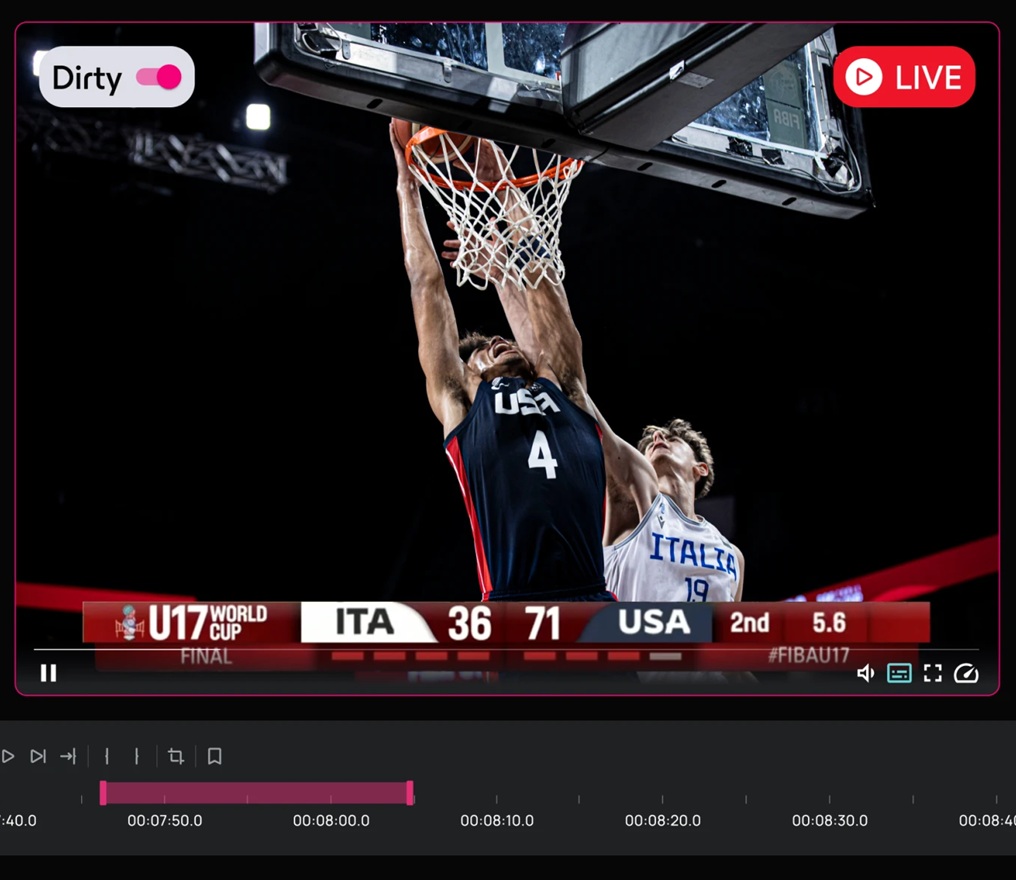
Scoreplay
New York, USA
Founded: 2021
Funding to date: $19.5m
One of the biggest developments for sport in recent years has been its expansion from traditional broadcasting to social media, where organisations use photos and short highlight clips to drive interest. For a lot of young fans, it’s now the primary way they watch some sports.
ScorePlay has built a software platform that uses AI to help teams and leagues automate the centralisation, tagging and distribution of media content like photos and videos. It initially launched in Europe but has expanded to the US and now powers content management for more than 200 sports organisations across the world
The company secured $13m in a January 2025 series A round that included FIBA, the International Basketball Federation, boosting its overall funding to nearly $20m. Other backers include F1 driver Nico Rosberg, several international footballers and funds run by NBA stars Giannis Antetokounmpo and Kevin Durant.

Nocap Sports
Seattle, USA
Founded: 2020
Funding to date: $2.5m
It isn’t just sports organisations that have upped their marketing activity. The athletes themselves are increasingly using social media to engage with fans, build their personal brands and (in the rare, entertaining case) launch public feuds with each other.
That process is now starting earlier, especially since a 2021 legal ruling stating that US college athletes can profit from their name, image and likeness. Nocap Sports began as a collegiate athlete influencer marketplace and has expanded to build athlete-driven content networks that can help universities raise money for their sporting programmes.
Nocap’s Revenue Solutions division signed a partnership with University of North Florida Athletics just last week. Venture firm Florida Funders led a $2.5m seed round for the company in 2021 that also featured Florida Institute of Technology and assorted angel investors.
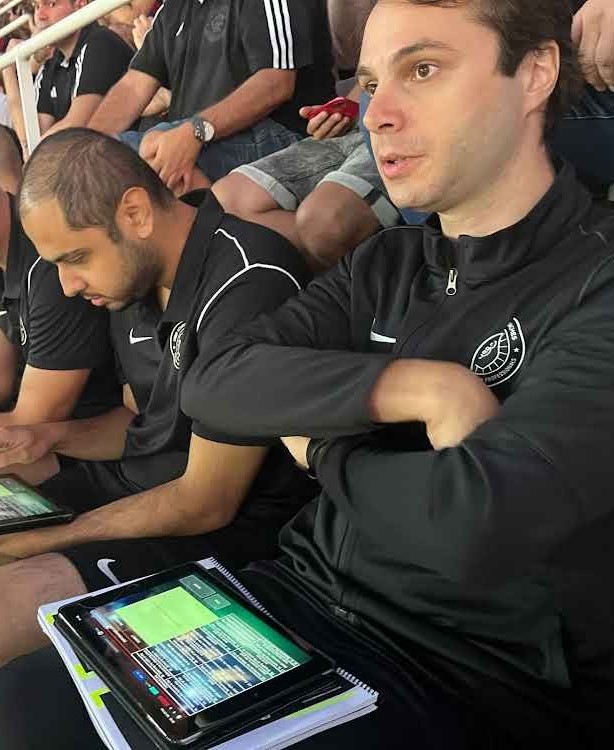
Run.Edge
Tokyo, Japan
Founded: 2018
Funding to date: $5.2m+
If social media has changed the game in sports promotion, advanced analytics have done the same on the field. There are plenty of startups with analytics tools limited to one sport in particular, but Japan’s Run.Edge has developed an app called FL-UX that can be used for a range of activities.
FL-UX enables users to watch and tag game footage in real time or afterwards, through a system that allows users to edit the clips and communicate with colleagues so that insights can be expanded into tactics. The technology is also the basis of a specialised baseball-themed tool called Pitchbase.
Run.edge closed a $5.2m series A round backed by KDDI, Data Stadium, Link-U, Crops Corporation, Mediaseek, Obunsha and Quiqsoft in 2020, before adding an undisclosed amount from KDDI’s Open Innovation Fund III two years later. Sony Innovation Fund is also an investor.
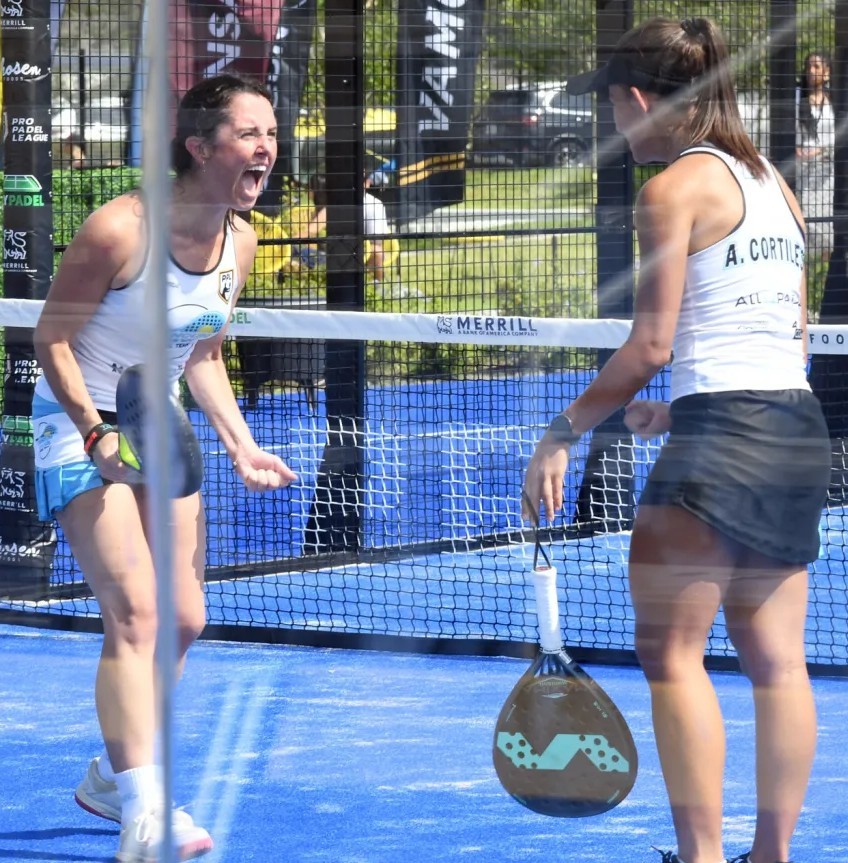
Pro Padel League
New York City, USA
Founded: 2022
Funding to date: $10m+
One of the most notable trends in recent years has been the growth of alternative racket/ball games. Intennse has formed a professional league based on a rapid-pace team tennis variation, while indoor pickleball franchise The Picklr closed a series B last year valuing it at $59m.
Padel, a Latin-originated variation, is arguably growing the fastest of all internationally, reaching 30 million users last year, and Pro Padel League has formed a North American professional league. It claims its inaugural three events drew 20 million viewers last year and it is expanding that schedule to five in 2025.
Venture capital firm Left Lane Capital led the company’s $10m seed round last month, investing alongside backers like padel club operator and investment firm Epic Padel, adding to an undisclosed amount supplied by padel-focused VC fund EEP Capital two years earlier.

SwingVision
San Mateo, USA
Founded: 2019
Funding to date: $8m
The growth of these new racket games has also allowed startups to expand their activity. Chief among them is SwingVision, which has expanded its computer vision-based tennis analytics software into pickleball and padel.
The startup has developed a single-camera AI system that can track rapidly moving objects in real time, and is using it for an AI-powered app that takes video from mobile devices and analyses it to provide automated stats, highlights and officiating. It has been adopted by professional athletes and more than 100 division 1 college tennis teams in the US.
SwingVision also counts Sony Innovation Fund as an investor, together with retired pro tennis players Lindsay Davenport, Andy Roddick, Alison Riske, Rohan Bopanna and James Blake. It bagged $6m in a late 2023 series A round that followed $2m of seed capital the previous year.
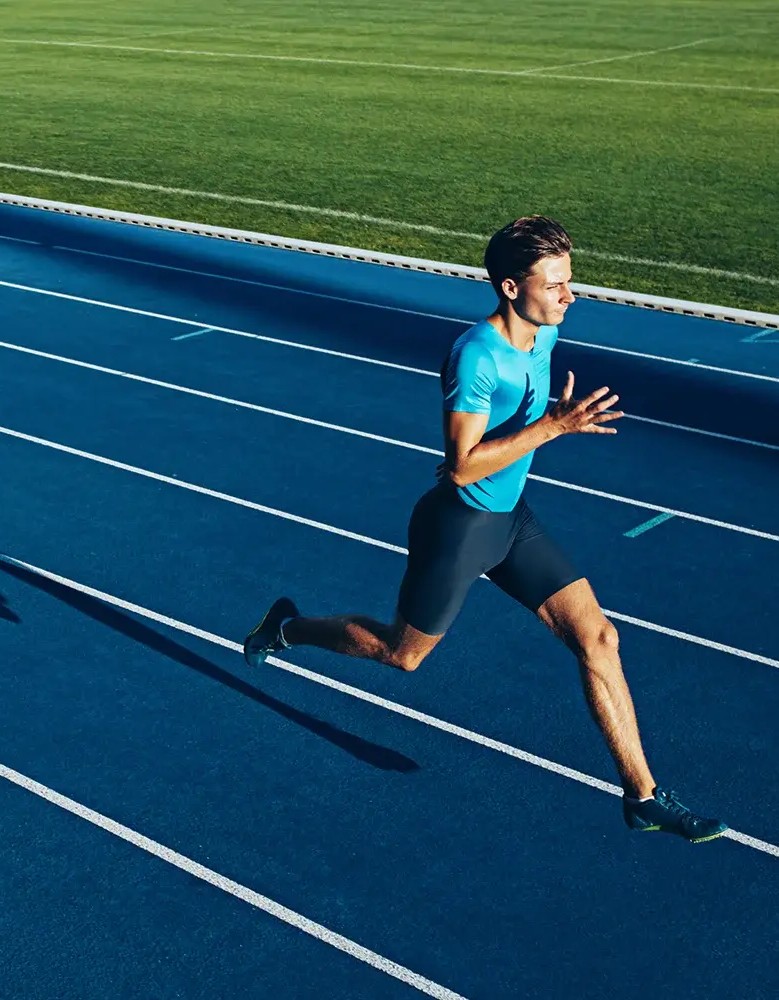
Biolyz
Tulln, Austria
Founded: 2021
Funding to date: Undisclosed
Austria’s Biolyz is also using AI in a performance analytics tool, but on the physical conditioning end. The startup has created a system that can produce insights based on a person’s biomarkers – but takes those biomarkers through a saliva sample rather than more traditional methods which use blood.
The result is a non-invasive test that Biolyz claims can deliver better results than a blood test, when combined with its advanced mass spectrometry and AI analysis tools. That data can then be used as the basis for fitness and conditioning plans that can reduce injury and prolong careers.
The startup received a seven-figure amount from an unnamed individual investor in August 2024. Its earlier backers include Swiss VC firm Atrinum Ventures.

Safr Sports
Chester Springs, USA
Founded: 2021
Funding to date: $2.8m
American football is the most popular sport in the US by some distance but a shadow has passed over it in recent years, in the shape of brain damage suffered by athletes in the form of repeated concussions.
Pennsylvania startup Safr Sports has created a helmet cover designed to lower the amount of external blunt force that can cause traumatic brain injuries, through the use of the Scientifically Advanced Force Reduction technology that gave the company its name. More than a dozen teams in the minor league-level UFL league use its covers.
Safr closed $2.8m from undisclosed investors in September 2023 according to a regulatory filing. Its peers include Bearmind, the Switzerland-based developer of a helmet that uses an impact-monitoring system to detect brain injuries when they happen.
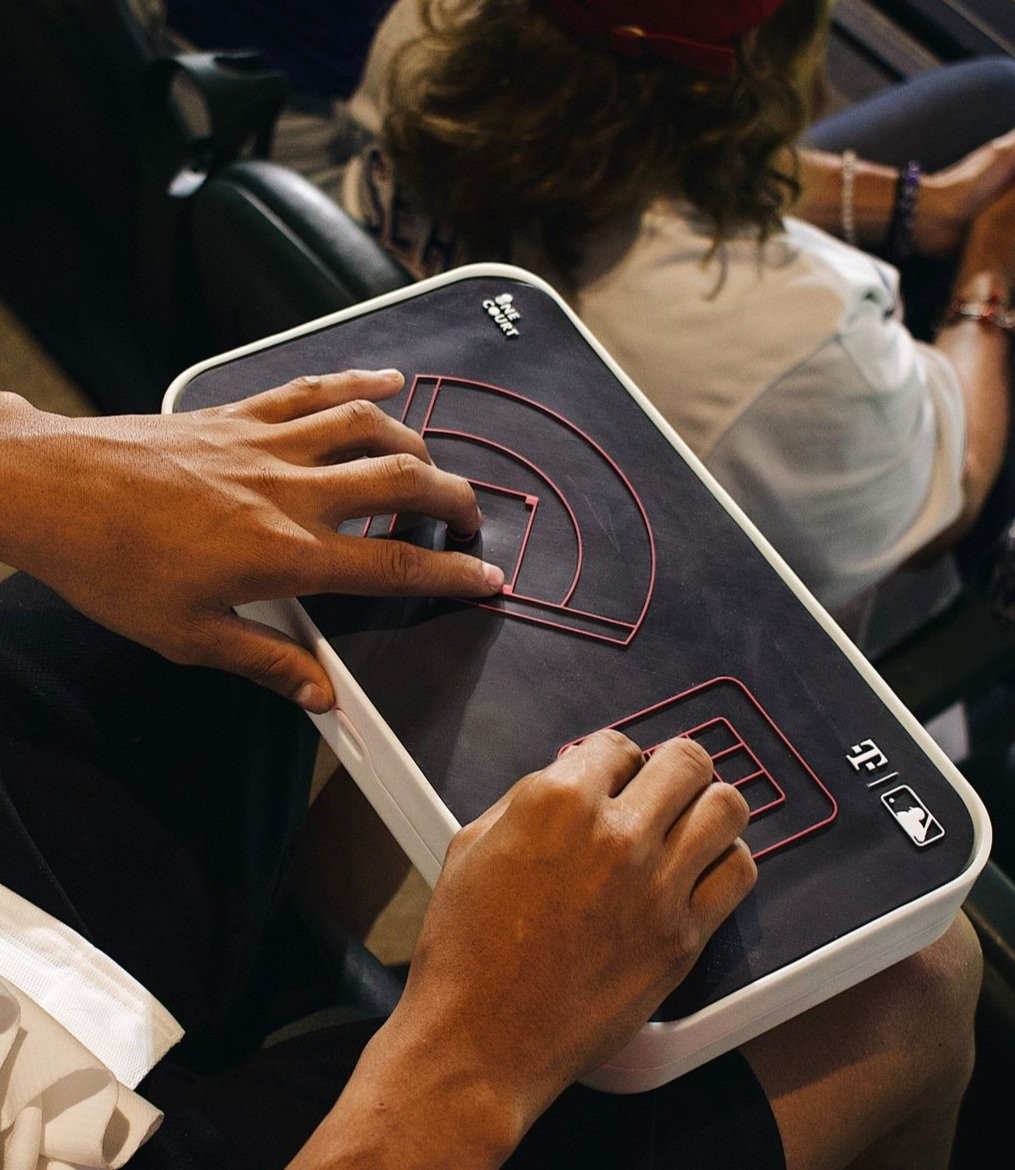
OneCourt
Seattle, USA
Founded: 2022
Funding to date: $15,000 (grant funding)
One issue that continues to affect many sports is accessibility, particularly for blind fans, but University of Washington spinout OneCourt has developed a tactile system that transforms gameplay activity into trackable vibrations, so blind and partially-sighted fans can ‘watch’ the game with their fingertips.
The startup’s haptic viewing devices track and communicate elements of a game like ball positioning while other aspects are evoked through different vibration patterns. They are now available for fans in the arenas of three NBA teams, and there is also a home version available.
OneCourt received a $10,000 grant when it finished third in the Buerk Center for Entrepreneurship’s Dempsey Startup Competition in 2022, adding $5,000 the following year from another University of Washington competition, the UW Hollomon Health Innovation Challenge.
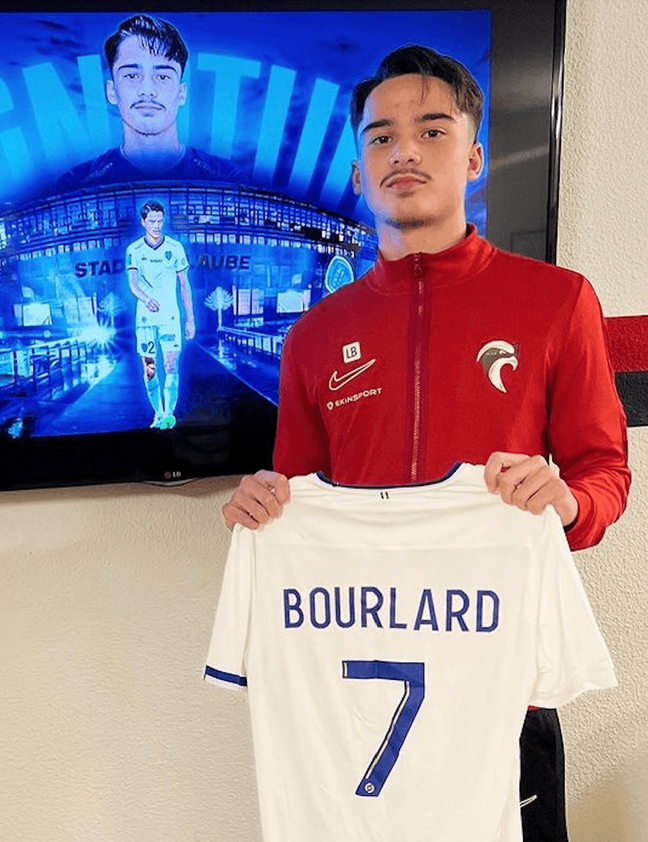
Eyeball
Prague, Czech Republic
Founded: 2020
Funding to date: $5.4m
Football is known as the global game for a reason: no other sport has the same level of cross-border participation, as professional clubs are constantly on the hunt to discover players from other leagues in other countries.
Eyeball is a Czech startup applies AI and data analytics to video footage to drive talent recruitment in football, and claims to have the world’s largest video database for elite youth football talent, as well as detailed player profiles and performance data. It has partnerships in place with more than 100 clubs across some 27 countries.
The company completed a $5.4m seed round in October last year featuring sports analytics provider Sportlogiq, allocating the cash to further developing its technology and expanding into the US and Latin America.

StatusPro
Miami, USA
Founded: 2020
Funding to date: $25.2m
Advances in computer vision technology have also led to new ways of interacting with sports, and StatusPro has created a virtual reality-based system that allows users to simulate the experience of playing sport in first person.
StatusPro’s platform can simulate any practice or game scenario in American football in VR, and the company says several NFL teams have incorporated it into their training. It has also been used as the basis for a VR video game, NFL Pro Era.
GV and Dream Sports both took part in StatusPro’s $20m series A round in February last year, joining an investor base that already included seed-round participants TitletownTech and Verizon Ventures, pushing its total funding past $25m.
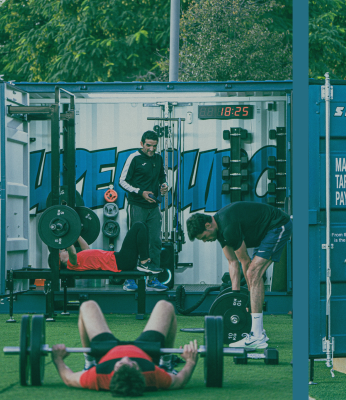
Supercubo
Sevilla, Spain
Founded: 2023
Funding to date: $160,000
Of course, sport and training doesn’t just take place on the professional level. Gym membership levels are reaching new highs around the world, including in Spain where Supercubo has created an accessible, modular training space.
The startup has developed a small-scale, solar-powered gym modeled for use by 20 to 25 people at a time, fitted in shipping containers which can be installed in public or private spaces and managed by franchisees in return for an initial investment and a fixed monthly fee.
Supercubo had raised approximately $160,000 as of late last month, with backing coming from the Spanish government’s startup financing scheme, ENISA, as well as a collection of angel investors that supplied pre-seed funding.
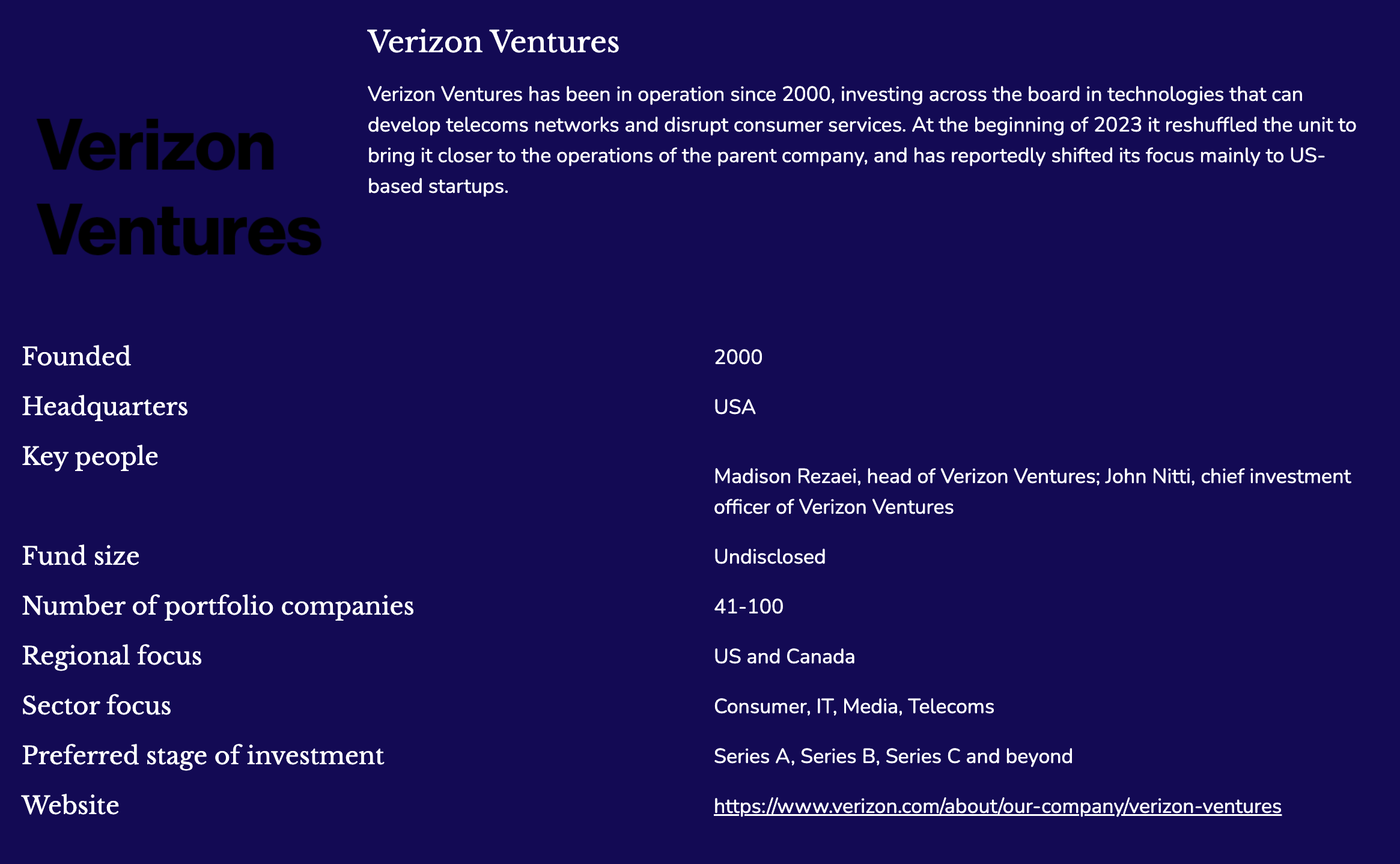
GCV+ subscribers can find details about the corporate investors mentioned in this piece in our CVC Directory.









